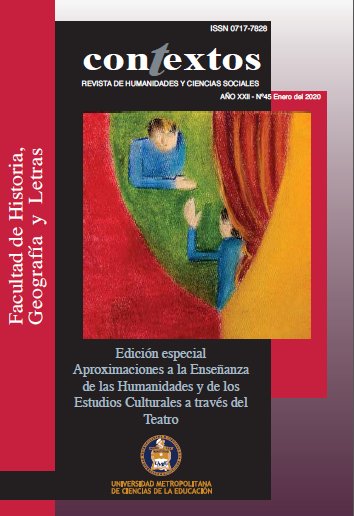Main Article Content
Sep 3, 2019
Abstract
Eloísa está debajo de un almendro (1940) by Enrique Jardiel Poncela, the first important drama premiered after the Spanish Civil War, reflects its historical context in many ways. Funny and fast-paced, it presents the antics of the Briones family, who have gone crazy because of suppressing any mention of a family member’s murder by another. The work lends itself to analysis through literary theories including Mikhail Bakhtin’s theory of counterdiscourse related to the Franco regime’s rhetoric of the family, and the rhetoric of silence, which critiques censorship. Jardiel Poncela called his theater “inverosimile” [unlikely], relating it to European theater of the absurd. Because it includes a murder, its use of frustrated detective conventions offers a further critique of injustices of the postwar. A careful analysis through several critical lenses helps students of Spanish as a second language understand Jardiel Poncela’s critique of the Franco dictatorship and the devastating effects of censorship and violence on any society.
Downloads
Policies for open access journals
Authors who publish here accept the following terms: Authors will keep their copyright and will guarantee the journal the right to the first publication of their work, which will be subject to the Licence of Creative Commons acknowledgement, which allows for the use of this material only if the authorship is credited and the original source is acknowledged (the journal’s URL), and if it is not used with commercial ends and with any derivations of the original work.
Authors may adopt other non-exclusive license agreements of distribution of the published version (e.g. to save it onto a digital institutional archive or publish it in a monographic volume) only if the initial publication of this journal is indicated.
It is permitted and recommended for authors to divulge their work on the Internet (e.g. institutional digital archives or webpage) before and during the submission process, which may lead to interesting exchanges and increase the citations of the publication. (See Open Access Effect).






